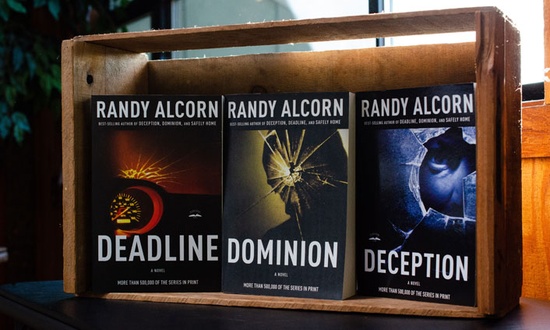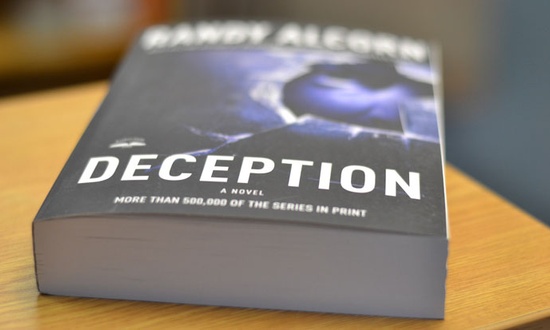Don’t buy the myth that writing is easy.
It’s not. I heard one author say, “Writing is like giving birth to barbed wire.” Others say writing is 5 percent inspiration and 95 percent perspiration. Books that were easy to write are invariably hard to read. Some writers seem so natural, so effortless. Don’t be fooled. It takes a lot of effort to appear effortless. With everything else competing for your reader’s attention, you must work to earn it. Many people say they want to write a book, but what they really want is to have written a book. Big difference!
Always give readers a compelling reason to keep turning the pages.
They have a thousand alternatives—why should they read your book? Give them uncertainty and create anticipation. “What’s next?” keeps them turning the pages, but predictability is fatal. Figure out the parts readers will skip over; then cut them out.
Never compromise on research.
It’s the reservoir from which you draw your story, so make sure the reservoir is full! And be sure you get the facts right—don’t put a safety on a revolver or the wrong size engine in a 1972 Chevy Impala. Don’t believe the myth “It’s fiction, so you can just make up the details.” Every factual error loses readers—why should they trust you? Always run it by the experts. In writing my three murder mysteries (Deadline, Dominion, and Deception), I consulted a homicide detective and other cops. When writing a novel set in China (Safely Home), I bounced it off people who have lived in China, who know the language and the culture. Your book needs to ring true to have the weight of credibility.
Don’t just construct characters; create them.
As we are created by God as whole and unique human beings, a character is a living whole, not just a collection of traits. Our characters must be more than the sum of their parts. Characters are real—they have back stories, histories, childhoods, and events that have shaped them. The writer must know all the details even though he won’t pass them all on. If our characters are not real to the author, they’ll never be real to the reader. Try to create memorable “tags” for your characters. Fred Holevas, former vice president of the high school I attended, was described in the Oregonian as “Dirty Harry with the heart of Mother Teresa.” Perfect.
Write to bring the reader to an “aha” experience, where some new and important perspective or value emerges.
People are reading for escape and entertainment, sure, but also for enlightenment, to fill some inner voids, to come back better prepared to face the real world. A test of depth and substance is where a book lends itself to rereading. C. S. Lewis said that the best book is one that you want to read again and again. Try to write a story that doesn’t yield up all its treasures in the first reading.
Why Write Fiction?
Fiction affords an opportunity to deal with serious themes, but in a manner most people can more easily relate to. I call it the “Trojan horse” effect. Readers will allow something that they do not totally understand to come inside the gates of their mind, and when their defenses are down, I can reach them with eternal truths in ways that are impossible with nonfiction. When you connect with a character on an emotional level, it can really make a difference. Jesus’ parables are the perfect example of the power of storytelling. I love the story of the prodigal son—we could write forever trying to define grace, but that story is grace demonstrated.
This article originally appeared in the Spring 2010 issue of Eternal Perspectives.




